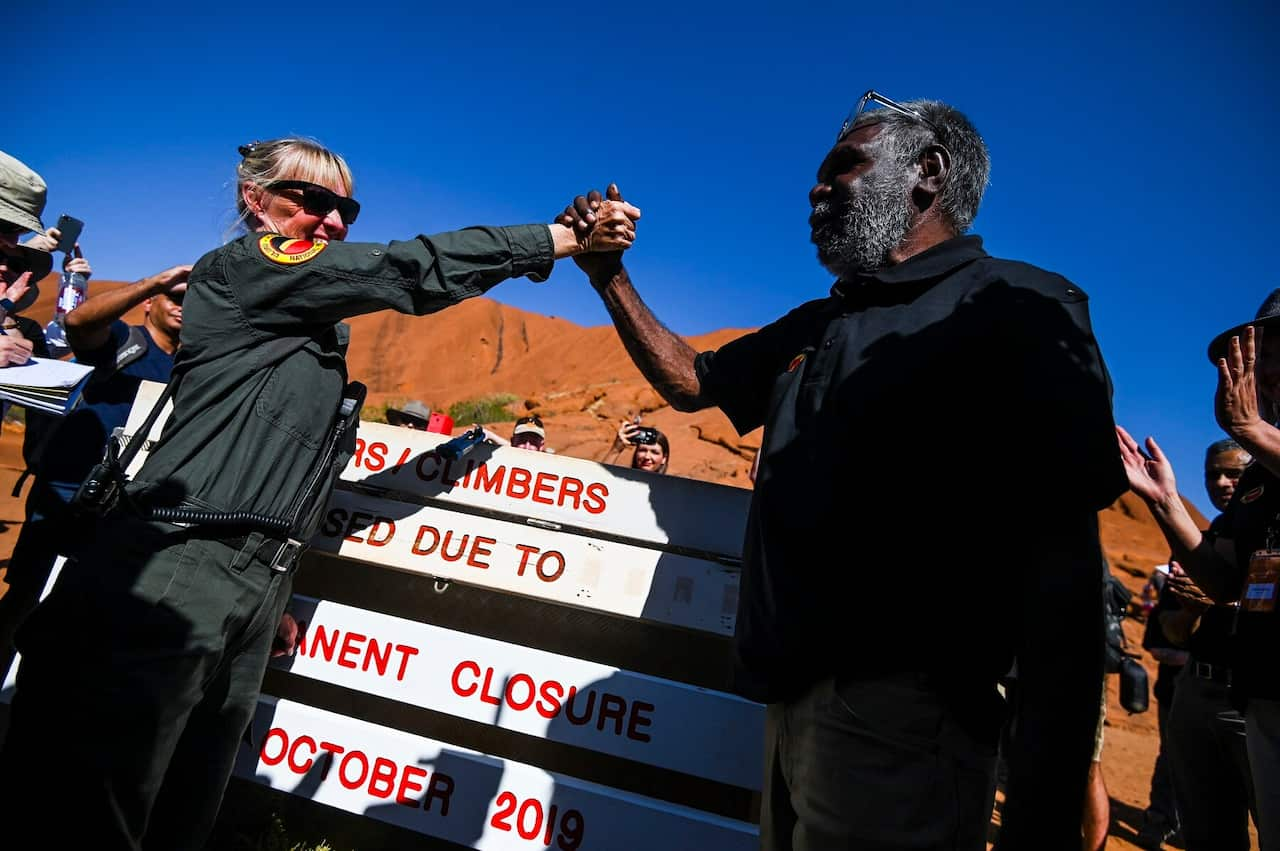Uluṟu-Kata Tjuṯa National Park is a sacred and important place to Traditional Owners, the Anangu people, and now the world will be able to learn of its significance in traditional language.
Dual-listed Uluṟu-Kata Tjuṯa National Park in the Northern Territory was first added to the World Heritage List - that recognises places of outstanding importance to humanity - in 1987, and is one of few recognised for both its cultural and natural values.
Last month at the 44th meeting of the World Heritage Committee, two quotes featuring Pitjantjatjara and Yankunytjatjara language by two Aṉangu Elders, were officially adopted to describe the sites value.
It marks the first time an Aboriginal language has been used and endorsed in the UNESCO 'Statement of Outstanding Universal Value,' and the first inclusion of a language other than English or French.
There are more than 1,100 properties in the World Heritage List.
Pitjantjatjara man and chair of the Uluṟu-Kata Tjuṯa National Park Board of Management, Sidney James, welcomed the inclusion.
“It is really important to show everyone our language is important, we need both languages. Our language has to stay,” Mr James said in a statement.

Parks Ranger Lynda Wright (L) and chair of the Uluṟu-Kata Tjuṯa National Park Board, Sidney James, shake hands as the Uluru climbing ban is imposed. Source: AAP
Keeping Anangu culture strong
In 2017, the board of the Uluru-Kata Tjuta National Park voted unanimously to end the tourist practice of climbing the sacred site.
The inclusion of Anangu language is another feat for the preservation of culture at Uluru.
An excerpt of the World Heritage statement reads:
Ananguku Tjukurpa kunpu pulka alatjitu ngaranyi.Inma pulka ngaranyi munu Tjukurpa pulka ngaranyi ka palula tjana-languru kulini munu uti nganana kunpu mulapa kanyinma. Miil-miilpa ngaranyi munu Ananguku Tjukurpa nyanga pulka mulapa. Tjukurpa panya tjamulu, kamilu, mamalu, ngunytjulu nganananya ungu, kurunpangka munu katangka kanyintjaku.
"There is strong and powerful Aboriginal Law in this Place. There are important songs and stories that we hear from our elders, and we must protect and support this important Law. There are sacred things here, and this sacred Law is very important. It was given to us by our grandfathers and grandmothers, our fathers and mothers, to hold onto in our heads and in our hearts"
Nintiringkula kamila tjamula tjanalanguru. Wirurala nintiringu munula watarkurinytja wiya. Nintiringkula tjilpi munu pampa nguraritja tjutanguru, munula rawangku tjukurpa kututungka munu katangka kanyilku. Ngura nyangakula ninti – nganana ninti.
"We learnt from our grandmothers and grandfathers and their generation. We learnt well and we have not forgotten. We’ve learnt from the old people of this place, and we’ll always keep the Tjukurpa in our hearts and minds. We know this place – we are ninti, knowledgeable."
The United Nations Decade of Indigenous Languages will be observed from 2022.


